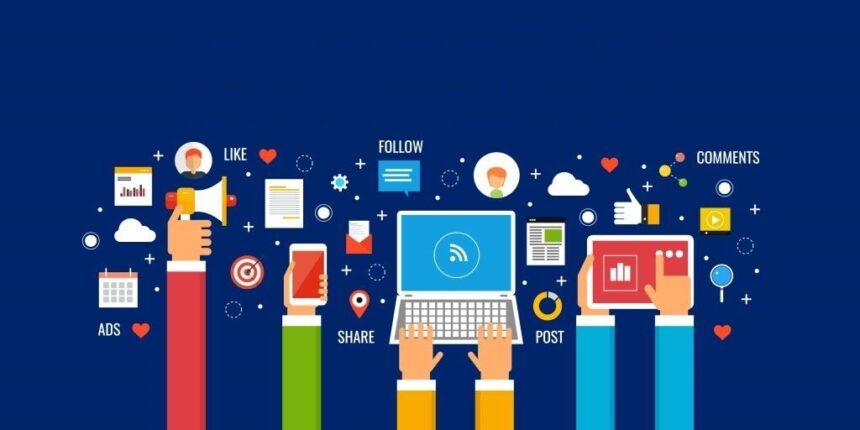Big data is playing a more important role than ever in fine-tuning the relationship between customers and brands. It gives brands better insights into their customer behavior, which helps them reach them more effectively. Social listening tools are a prime example of this application.
The Complex Role Between Big Data and Social Listening Tools
Social media is a critical piece of the marketing puzzle for every brand today, regardless of the industry you?re in. The majority of consumers who have good interaction with a brand on social networks are more likely to recommend that brand to others. This is good news for businesses: after all, 92% of consumers fully trust word-of-mouth recommendations. Having a social media strategy also allows you to put yourself level ground with your competitors. Roughly 91% of retailers, for instance, are active on at least two social media platforms. With so many companies active on social networks, you can?t afford to be left out of the dialogue. They must amass data on their customers to get a better understanding of their needs and preferences. The social media dialogue can help your business in a variety of ways. And that?s where social listening comes into play. Here?s how social listening can help grow your brand:
What Is Social Listening?
First, it?s important to understand what social listening is exactly. Social listening is the process of monitoring your brand?s digital conversations to gain a better understanding of how customers are perceiving and interacting with your business, as well as how they feel about your industry or niche. Why is this so important? For starters, with so many different digital channels and networks, consumers are turning to them to discuss their feelings and experiences of different businesses.
?Understanding what your customers are saying about you is vital,? says Lee Jacobs of AngelList. ?Social listening involves paying close attention to public feedback, and having a strategy in place for addressing the needs of your customers in the open.?
Customers are freely handing over data to brands to improve their experience. Although polls from Pew Research shows they are concerned about privacy, they don?t mind giving it to companies that are going to provide better value. But those companies need to know how to collect the data and use it. Social listening is one of the best approaches.
Social Media Listening vs. Monitoring
Now that you understand a bit more about social listening, it?s also important to understand that social listening isn?t the same as social media monitoring. Social media monitoring involves collecting data and is quantifiable. It takes into consideration things that have already happened, and is useful for making changes to your campaigns in the future. For example, it hones in on metrics in social media like retweets, engagement rates, mention, and story completions. Social media listening (also called social media sentiment), on the other hand, is the ?here and now? of your business. It involves paying active, manual attention to how consumers feel towards your brand. When you pay attention to what people are saying?to you and your competitors?you can better identify opportunities for engagement. Social media monitoring gives you the what, while social media listening gives you the why. However, they need to make sure that they get access to the right data. To better explain how social media listening works, Hootsuite provided the following example about Purdue University:
?For example, on its annual Purdue Day of Giving, Purdue University uses social listening to identify donors. They then to respond personally to everyone who mentions on social media that they donated. This creates donor engagement and excitement, increasing the odds that people will donate again the next year. It also helps the university keep the momentum going on this critically important fundraising day.?
Social Listening Tools
With social listening becoming more and more important for brands, there are a handful of startups that have sprouted to help tackle the topic. For example, the company Tweetdeck was ahead of their game when they recognized the need for businesses to engage with their customers back in 2009. During this time, they raised $300,000 in seed funds, $3.5 million in Series B in 2010, and was quickly acquired by Twitter for $40 million in 2011. AgoraPulse is another example of a social media platform that honed in on social listening. Its goal was to ?turn anonymous social media audiences into qualified prospects for sales and marketing? and the company raised $300,000 from a VC firm in 2012. A number of companies use big data to provide better social listening capabilities. Here are a few other social listening tools you can take advantage of with the benefits of big data:
Track Reddit
Reddit is a premier site for online discussions, and people turn to this platform to have detailed, open conversations about hundreds of different topics. With Reddit Tracking, you can monitor submissions and comments based on specific keywords and phrases. The moment a mention is made?no matter what subreddit it?s in?you?ll be the first to know.
Synthesio
is a social listening tool that allows brands to measure the impact of online conversations against their business goals. Unlike some of the other offerings, Synthesio is multilingual, and can monitor conversations happening in over 80 different languages. This is useful for businesses with an international presence.
Netbase
The Netbase social listening platform is unique because it?s powered by artificial intelligence. It leverages expert systems and deep machine learning to provide actionable customer experience insights.
Big Data Makes Social Listening More Viable than Ever
There are a number of benefits of big data for established brands. One of the biggest benefits is that you can use big data for social listening. This gives companies the opportunity to make data-driven insights and empirical decisions on their customers.

